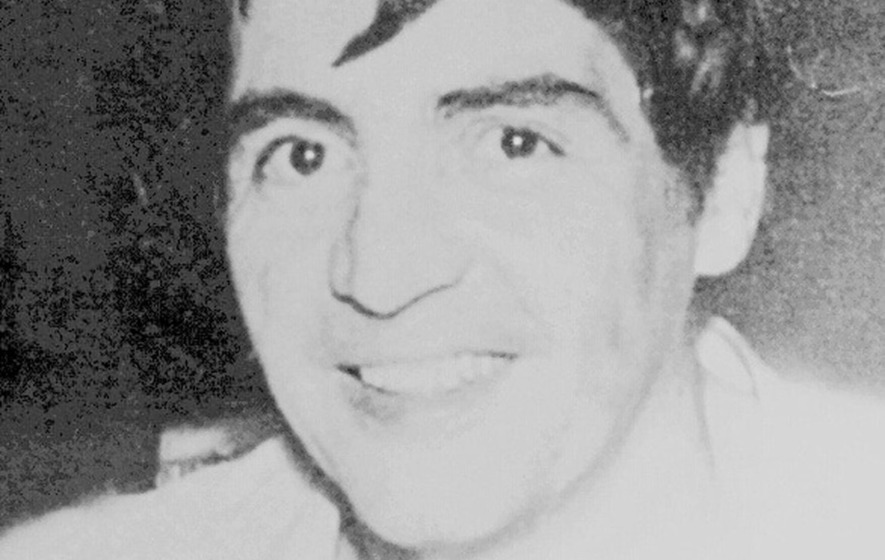High Court judge dismisses civil proceedings brought by Carberry family against the Ministry of Defence (MoD) in relation to the killing of their father Stan Carberry by the British Army.
The High Court has dismissed civil proceedings brought against the Ministry of Defence (MoD) by the son of Stan Carberry. He was shot dead by British soldiers on the 13th November 1972. He was later claimed as a member of the IRA. Mr. Justice McAlinden held that limitation periods in the case which expired back in 1991 could not be extended. He said the children of Stan Carberry did not seek legal advice until they sought the assistance of Relatives for Justice (RFJ) in and around 2008. RFJ then directed the family to KRW Law who took up the case. However, the writ in the case was not issued until 2014 and he ruled that the limitation period which expired in 1991 could not be extended.
The circumstances about how Stan Carberry was killed are highly disputed with accounts from civilian witnesses differing from those of the British soldiers. A British Army patrol had been told to look out for the stolen car and apprehend the occupants. Instead, they got out of their vehicles and opened fire as the car drove along the Falls Road towards Donegall Road. It rolled to a halt at the junction of La Salle Drive. The soldiers claimed that there was shooting from the car, though no soldier was injured nor were weapons recovered. Their shots, however, killed Stan; his colleague escaped. The autopsy revealed three wounds in Stan’s back. Civilian eyewitnesses contradicted the soldiers’ account, though these were not collected into the official investigation at the time. However, despite the disputed and controversial circumstances of Stan Carberry’s death Mr. Justice McAlinden stated,
“The court in a misguided effort to provide Mr. Carberry Jr and other members of the Carberry family with the truth, cannot embark on a flawed and unfair process which risks delivering historical untruths, constructed from incomplete evidence which patently lacks cogency.”
“This claim is statue barred and the defendant (MoD) shall have judgement accordingly.”
Mr. Justice McAlinden’s judgement clearly suits the MoD as they had argued throughout the course of the proceedings that the civil action should be time-barred. In fact, they stated in their evidence that the killing of Stan Carberry was “clearly and demonstrably justified in law.”
However, the death of Stan Carberry like many British army killings in the 1970s was never thoroughly investigated by the RUC in 1972. This was an important case, a test for many of the more than 1,000 civil cases lodged by victims of state violence against the MoD. The PSNI and the Northern Ireland Office (NIO). Lawyers for the British state argue that, due to the lapse of time, such hearings cannot deliver justice. This is very convenient seeing that the British government has delayed for so many years previous attempts to establish proper Article 2 compliant mechanisms to deal with the legacy of the conflict.
Incredibly given this background in the case Mr. Justice McAlinden went on to say,
“There is something innately unfair about the plaintiff (Stan Carberry Jr) and other dependents waiting with no good reason for such an inordinately long period of time… and then requiring the defendant (MoD) to identify, garner and call evidence justifying the split-second decisions of soldiers who were presented with the presence of a hijacked car on the Falls Road on the 13th November 1972.”
Stan Carberry’s children have, for years, been trying to get a proper investigation into the incident which requires the soldiers to explain their actions. Instead, the state has protected them from accountability and sought to frustrate the family’s search for truth. In the absence of any other mechanism, and after years of campaigning and legal actions to access state-held information, this civil case was their only course of action. It has great significance for many other such incidents where British soldiers killed people during the conflict in disputed circumstances and with no proper investigation being held.
Remarkably, in the Stan Carberry case, when faced with an accusation of unjustified killing, the state has come to court with no witnesses and no evidence. None of the soldiers who fired shots at Stan Carberry have been brave enough to attend and explain themselves, an attitude suggestive of disdain for the loss they caused, and for the family left without a father.
Relatives For Justice (RFJ) has supported the family for years and has been proud to do so. We understand their determination to assert that their father did not need to be shot. Having been denied by the British government of other means to do so, such as were supposed to be established under the terms of the Stormont House Agreement, this has been their chance to have their day in court.
As Stan Carberry’s son Stan said when bringing these proceedings against the MoD,
“It seems these soldiers and the MoD have much to avoid and hide in their deliberate killing of our Daddy. All the heartache could have been avoided for our family. We can only view this as a deliberately vindictive decision to cause us further hurt. We thank all those who have supported us.”











